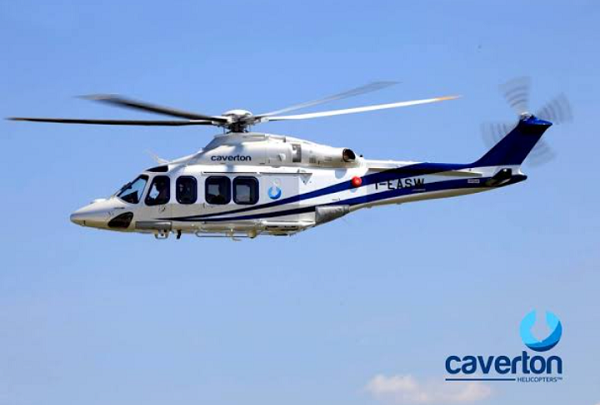Strong indications have emerged that Caverton Helicopters Limited is going through financial troubles following mass exodus of its pilots over months of unpaid salary and other operational issues the company has been going through in the last couple of months.
It was gathered that in the last three months alone starting from November 2021, Caverton has lost about 20 of its pilots to industry rival, OAS Helicopters, which sources said offers better salary packages and welfare for its pilots and other staff.
OAS Helicopters is said to have won ExxonMobil Offshore aviation contract and has been poaching experienced pilots from Caverton with mouth-watering offers to service their new client.
Trouble began for Caverton Helicopters, a subsidiary of Caverton Offshore Support Group PLC (COSG), when it started delaying payment of staff salary, most especially the pilots who are critical to its operations.
It moved from delay in salary payment to outright owing of pilots’ salaries for months according to our reliable sources.
Due to the financial crunch the company is currently going through and attendant safety concerns as a result of non-payment of staff salary, Shell Petroleum Development Company, the major client of Caverton, has suspended its multimillion dollars contract until the team from the international oil company is satisfied that Caverton is back in good financial state.
One of our sources who is a top industry leader alleged that there is a mismanagement problem at Caverton because the company is run as a family business with scant regard for corporate governance.
The company is also said to have been exposed to political risk.
The family of Chief Remi Makanjuola who owns Calverton is said to have been entangled in Lagos politics.
His son, Niyi Makanjuola, Chief Executive of Visionscape, was at the centre of the controversial N50bn Cleaner Lagos Initiative project with Lagos State Government under the Akinwunmi Ambode’s administration.
“Caverton is not finding things easy and I must let you know that they have lost a large chunk of their pilots to OAS.
“The problem may be around mismanagement because there is no reason why a company handling a Shell contract that is worth over $1bn dollars should be in the kind of financial quagmire Caverton is currently in.
“For over four months now, they cannot hire new pilots to replace those that left. This is a major red flag for a company that is working with Shell, an IOC that does not joke with health and safety. Everything in oil exploration and production is about HSE. It did not come to anyone as a surprise that Shell suspended Caverton’s contract,” the source said.
When contacted to confirm the veracity or otherwise of the status of Caverton’s contract with Shell, Communications, Media and NGO Relations Manager for Shell companies in Nigeria, Mr. Bamidele Odugbesan, said it was true that Caverton was going through a kind of operational audit.
“Not all the services of the airline are affected. We are however working with Caverton to address areas of concern in the overall interest of the safety of our staff and contractors,” he said.
A helicopter pilot is who is very conversant with what is going on in Caverton told Western Post that the aviation service provider is using AW139 helicopter for its Shell contract and not all pilots are type-rated to fly the machine.
“We cannot entirely blame Caverton for any pilot that left. Fact is people will always move to the next employer that pays better. Whether Caverton is experiencing cash crunch or not people will move. What Caverton needs to do is to employ pilots and train them to be rated to fly AW139. Caverton has the training centre in Nigeria in partnership with CAE, a Canadian firm.
“The centre is in Lagos and was recently certified as a world-class training facility by European Union Aviation Safety Agency (EASA). To train and be certified to fly AW139 in South Africa or United States is about $50,000. The training takes about 3 to 6 months for pilots already rated on other types of helicopters. It is just a conversion programme. There are pilots who are out of job and don’t have money for the training. Caverton should employ these pilots, train them and put them on bond to pay back the cost of their training over time and they will be back with the right manpower to deliver on their contract,” said a pilot who does not want his name mentioned.
It was also gathered that Caverton put out an advert asking for qualified pilot to apply to fill existing vacancies but three months after, the process has not been completed.
In 2010, Caverton announced it won a multi-year contract for the operation of six helicopters for Shell. The company currently has, in its fleet, 9 AW139 helicopters.
Caverton Offshore Support Group Plc (COSG), a leading provider of marine, aviation and logistics services to local and international oil and gas companies in Nigeria announced in 2015 that Shell Petroleum Development Company (SPDC) exercised contract extension options with its subsidiary, Caverton Helicopters Limited for another 2 years which should have expired in 2017. It is possible Shell granted another extension that allows Caverton to still be active on the contract till date.
Recently, Caverton took some media executives on guided tour of its European Union Aviation Safety Agency accredited training centre located at the Murtala Mohammed International Airport in Lagos. The company is an official full flight simulator operator. The EASA certification was granted on Thales Level D, Reality H full-flight simulator product for the AW139 helicopter. Caverton’s facility is the first Reality H system operational in Africa.
Developed in France, the AW139 Full Flight Simulator offers pilots an immersive experience with extremely faithful reproduction of their operational missions, to train in complete safety for a variety of complex situations, including adverse weather conditions, helicopter failures and emergencies that could occur in the real flight operations.
Source: Western Post


Comment here